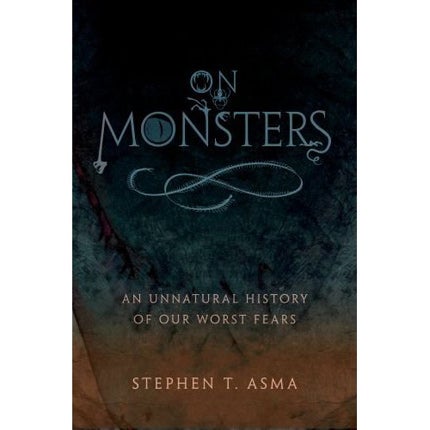On Monsters, By Stephen Asma
He's seen the future... it's rotten

Your support helps us to tell the story
From reproductive rights to climate change to Big Tech, The Independent is on the ground when the story is developing. Whether it's investigating the financials of Elon Musk's pro-Trump PAC or producing our latest documentary, 'The A Word', which shines a light on the American women fighting for reproductive rights, we know how important it is to parse out the facts from the messaging.
At such a critical moment in US history, we need reporters on the ground. Your donation allows us to keep sending journalists to speak to both sides of the story.
The Independent is trusted by Americans across the entire political spectrum. And unlike many other quality news outlets, we choose not to lock Americans out of our reporting and analysis with paywalls. We believe quality journalism should be available to everyone, paid for by those who can afford it.
Your support makes all the difference.In this elegantly produced, wide-ranging study, with a decidedly humane price-tag, Chicago professor of philosophy Stephen Asma observes that monstrous creatures "are symbols of the disgusting, with their decaying flesh, mottled limbs, and rotting, putrefying tissues and organs". That is, "monsters are thumbnail sketches of our own destiny. It is our human fate to slowly fall apart and to cause revulsion in younger, healthier witnesses".
In working towards his conclusion that our odium for such creatures is a tacit fear of our own death, Asma is steeped in sources as varied as the Bible, Plato, Hollywood, and Shakespeare, who would have had celluloid moguls hungry for his talents after writing in Othello of "men whose heads/ Do grow beneath their shoulders". Asma also meditates upon the horrors perpetrated in Cambodia, and by those "monsters" who forsook normality; such as the 1920s Chicago murderers, Nathan Leopold and Richard Loeb.
Freud declined a newspaper's offer of $25,000 dollars to analyse them. Crass as that offer may have been, it recognised that the mind is, as Milton wrote, its own place. Asma is alert to notions such as that the Salem witch trials perhaps resulted from delusions fostered by spoiled rye grain. He has a ready eye for such biological formations as hermaphrodites; and is ready to admit that "when I read Pliny's description of a tree-climbing octopus, I laughed smugly for half an hour". But then "a nagging thought occurred... and after some research into cephalopod biology, I discovered to my embarrassment that octopi do indeed occasionally crawl on land".
While Asma delineates many fantastic creatures, his book is essentially a study of the mind as both a warped and pioneering force. Naturally, he refers to Stephen King, but overlooks the novelist's fine study of the subject, Danse Macabre. It notes of Richard Matheson's The Shrinking Man that "luckily for us, Matheson... is more interested in Scott Carey's heart and mind than in his incredible catabolism". Meanwhile, one could equally welcome, on land, in 3D: The Octopus Terror.
Join our commenting forum
Join thought-provoking conversations, follow other Independent readers and see their replies
Comments